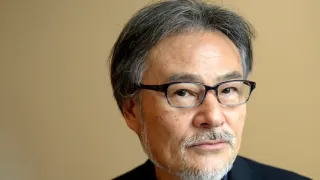
Jul 26
Brittany Cartwright Shares Candid Update on “Horrible” Divorce From Jax Taylor
READ TIME: 2 MIN.
Brittany Cartwright, reality television star and LGBTQ+ ally, has spoken out about the emotional turmoil she continues to face as her divorce from Jax Taylor remains unresolved. Appearing on “Watch What Happens Live with Andy Cohen,” Cartwright described the process as “horrible,” expressing her frustration over the slow pace and the toll it’s taken on her family and personal life .
During a rapid-fire Q&A segment, Cartwright was asked about her current relationship with Taylor. She revealed that, contrary to public speculation and Taylor’s own earlier comments, their divorce has not yet been finalized. The couple, who were expected to officially end their marriage by July 21, are still legally wed, a status confirmed by both Cartwright and Taylor in recent days .
Cartwright’s top priority remains her four-year-old son, Cruz Cauchi, whom she co-parents with Taylor. She has repeatedly emphasized the importance of providing stability for Cruz amid the upheaval. In a recent episode of her podcast, “When Reality Hits,” Cartwright described the joys and challenges of motherhood and discussed her hopes for the future .
Though she admits to having “baby fever” when spending time with friends’ children, Cartwright insisted she is not ready to expand her family just yet. “I don’t think that I want a baby right now or anything. But golly, it's hard after you've had a kid and you're around the cutest little babies,” she said . The reality star affirmed her focus is on Cruz and her own healing, adding, “I just love kids…but I need to find a man first.”
Cartwright’s public candor about her divorce has resonated with many LGBTQ+ viewers and allies who understand the challenges of navigating family transitions in the spotlight. Her willingness to discuss emotional vulnerability, co-parenting, and the complexities of starting over aligns with ongoing conversations in both LGBTQ+ and broader entertainment communities about redefining family, resilience, and chosen support networks.
As a visible ally, Cartwright’s journey has often included advocacy for inclusivity and acceptance, both on and off-screen. Her experience underscores the need for accessible support systems—legal, emotional, and social—for all individuals undergoing divorce or significant life changes, regardless of sexual orientation or gender identity. The conversation about her “horrible” divorce also highlights the importance of mental health resources and affirming spaces for single parents and their children.
While Taylor is reportedly not returning to the next season of “The Valley,” Cartwright continues to prioritize her own well-being and that of her son. She has expressed hope for future happiness, both romantically and professionally, and remains committed to her role as a mother and advocate.
Cartwright’s transparency about her struggles and her commitment to self-care serve as a reminder of the power of authentic storytelling in media. For LGBTQ+ audiences and allies alike, her ongoing journey offers visibility and solidarity, reinforcing the message that families—in all their forms—deserve compassion and support during times of change .






